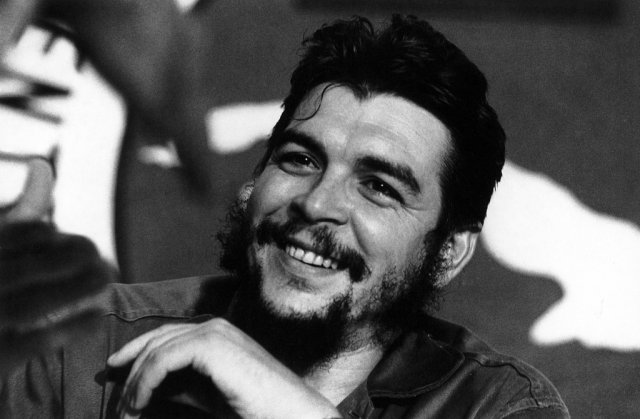October 15, 2016

Ernesto “Che” Guevara.
Ernesto “Che” Guevara was executed by a Bolivian soldier in the village of La Higuera, Bolivia, on October 9, 1967. The soldier was acting on orders that came directly from Bolivia’s then-president Rene Barrientos.
Guevara was summarily executed for fear that a trial would become a public spectacle and garner sympathy for Guevara and his revolutionary socialist cause.
History has proven that what Barrientos, and Latin America’s elites, wanted was impossible. Guevara’s ideas live on and he continues to serve as an inspiration for leftists and revolutionaries throughout the world.
Nearly 50 years after his death, Latin America is the scene of struggles rooted in the same ideas that Guevara represented: justice, equality and the liberation of the oppressed.
Argentine by birth, Guevara was a committed internationalist. He was born to a middle-class family who frequently relocated in order to alleviate the severe asthma that afflicted the young Guevara.
As a young man, he studied to become a doctor, interrupting his studies to travel throughout the region. It was on these travels that his political consciousness and commitment was awakened.
Guevara was struck by the plight of the peasants, the working class and the poor of the Americas. In Guatemala, he witnessed firsthand the US-backed military coup against the democratically-elected reformist President Jacobo Arbenz in 1954. The experience led him to conclude that the forces of imperialism would not tolerate peaceful change.
Guevara met Fidel Castro in Mexico City. The two formed a bond and partnership that led them to fight side-by-side in a guerrilla campaign to oust the US-backed Fulgencio Batista dictatorship in Cuba. Guevara’s dedication and effectiveness as a guerrilla fighter earned him the rank of comandante. He played a key role in the victory of the Cuban Revolution, leading a column of fighters in the pivotal battle of Santa Clara.
With the revolution’s victory, Guevara set about implementing in practice his socialist ideals. He served as minister for industry and supervised a huge land reform process. He worked diligently in his post and sought to embody the qualities that he wished to see from the Cuban people, the notion of the “new human” that a socialist society requires.
Guevara became an important figure on the international scene, representing Cuba in delegations that visited many socialist and Soviet-aligned countries. Although Cuba was in the sphere of influence of the Soviet Union, Guevara was independent-minded and not afraid to criticise the policies of Cuba’s most important ally.
Guevara never abandoned his internationalist convictions. In 1965, he left Cuba and his government posts to support the national liberation struggles of the African continent. Frustrated by a lack of success in the Congo, he returned Latin America.
Determined to spread the revolution to other parts of Latin America, Guevara created a guerrilla army in Bolivia where he attempted to implement the foco theory of guerrilla struggle. But the guerrillas suffered a number of debilitating setbacks and defeats at the hands of the US-trained and supported Bolivian army. These setbacks culminated in Guevara’s capture and execution.
The political situation in Latin America has changed in many regards since Guevara took up armed struggle. Many left-wing parties and movements have found electoral success in the political arena.
On the streets of Latin America, young and old alike wave flags with the famous image of Guevara, a symbol of resistance, determination and hope for a better world. Barrientos and his ilk hoped that the ideals of Guevara would die along with him, but his execution only served to further fuel his revolutionary legacy.
[Reprinted from TeleSUR English.]